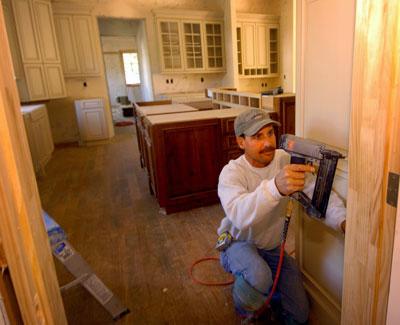The price correction in the Denver real estate market has created a lucrative investment property opportunity for real estate investors. Properties can be acquired at distressed prices through public trustee sales, short sales, or directly through asset managers at banks. Often, the acquisition price is below replacement costs to build the property.
Seasoned and new real estate investors have been flocking to public trustee sales to learn more about the process and the opportunity at hand. What most investors find, is encouraging, but also discouraging. The encouraging part, is that deals are available and money is to be made with the proper investing tactics. The discouraging part is that a significant amount of cash is necessary to be successful.
In order to purchase properties at the public trustee sale bidders must have cash. If a successful bidder obtains a property for $120,000 they have until the afternoon to delivery the $120,000 paid in full. This significantly reduces the pool of potential investors. Even if a successful bidder was given a few days to obtain a loan in today’s market conditions it would be nearly impossible. So where does that leave the common real estate investor?
Potential real estate investors who have the knowledge, skills and the drive to purchase distressed property, but lack the cash should seek private money sources. Private money sources are approached on nearly a daily basis with a proposal to fund distressed properties to be rehabbed and marketed towards primary buyers or cash flow real estate investors. Most groups will not secure the financing needed because of their experience, or business proposal.
Without a proven track record, it does not make sense for a private lender to fund a group, because there are so many experienced investors seeking additional capital. Private money sources are a passive investor that seeks a double digit return on their money. Every deal is different and private money lenders understand this.
Depending on the private money source, the return may be a small percentage up front (1%-3%) with a 15% annualized return on investment. Lets break those numbers down. Lets assume that a real estate investor needs $150,000 to purchase and rehab a property. From the time they purchase the property to the time it is sold takes 120 days. $150,000 at 15% is $22,500 annually. That breaks down to $1,875 a month. Since the real estate investor borrowed the money for 4 months, that would be $7,500 in interest due, plus the 2% paid up front, putting the total cost of funds at $10,500. If the net profit on the project was $25,000 it would bring the net profit down to $14,500. After the cost of funds are factored in, the net return on investment would be 9.6%.
Private money lending is a lucrative business, but can also be a risky business. Private money lenders exist, because traditional banks will not finance projects that private money sources will. In return for taking on above average risk, private money lenders get an above average return. Private money lenders do not take risks without safeguards however. Since borrowers have no others sources to turn to, private money lenders are able to set their own terms and rules.
To protect themselves against a potential default, private money lenders will take the first deed of trust in a property. This gives them control over the property in case of a default. In our example, if the borrower were unable to sell the property and unable to pay back the private money lender their funds, the private money lender would take ownership of the property and the borrower would be left with nothing.
The private money source now has a completed property that they are able to sell or rent depending on their strategy. There are private money lending sources that make loans expecting or hoping for a borrower to default and take control of a property or deal.
With so many foreclosures in today’s real estate market, ample opportunity is available for both real estate investors and private money lending sources. Depending on the financial position and the amount of work required, a real estate investor may want to rehab distressed property, or become a private money lender themselves (wealth individuals may also place money with private money lenders or brokers). Carefully evaluating the risk and reward based on each deal will real estate investors to make an informed and hopefully profitable decision. If you are interested in becoming a private money lender in the Denver market contact us for a free report, if you are in need of private money for your rehab in the Denver market send us an over view of your deal for evaluation.

Leave a Reply
You must be logged in to post a comment.